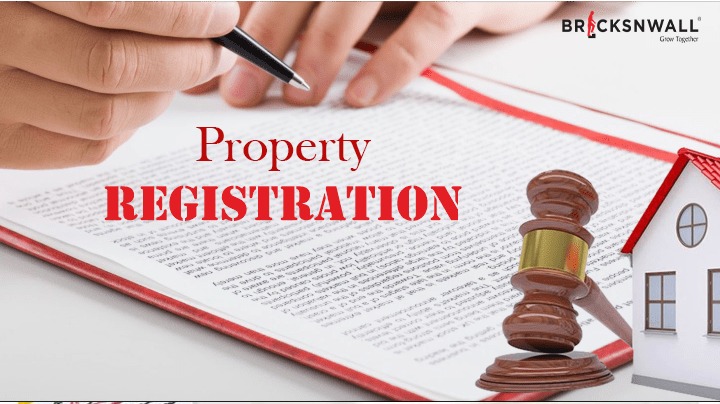How to get your property registered?
Bricksnwall Trusted Experts

The
property registration process is the legal process of transferring property
ownership. This is between the seller to the buyer. It is a crucial step in the
buy or sale of a property. The reason lies with the safety of the transaction
and it’s binding to the property under the law. Here are the steps involved in
the property registration process:
Step
1: Sale agreement
The
first step in property registration is to execute a sale agreement. A sale
agreement is a legal document that sets out the terms and conditions of the
sale, including:
1. The sale price,
2. Payment terms,
3. Possession date and any
other relevant details.
The
sale agreement must be stamped and registered with the sub-registrar's office.
Four months of the execution date is the deadline for the same. The stamp duty
payable on the sale agreement varies from state to state. The same is
calculated as a percentage of the property's sale value. Stamp duty is a tax
that the state government levies on property transfer.
Step
2: Title search
Once
the sale agreement is executed, the buyer must conduct a title search. A title
search is a process of verifying the ownership of the property and checking
for:
1. Any liens,
2. Encumbrances or disputes
that may affect the property's title.
It
is an important step in the property registration process. This is because it
ensures that the property has a clear title. No such attached legal issues may
affect the buyer's ownership rights. The buyer can engage a lawyer or a title
search agency to search.
Step
3: Property valuation
The
next step in the property registration process is to value the property. This
document helps enquires about:
1. The stamp duty and
2. Registration fees payable
on the property.
The
valuer will consider several factors, such as:
1. The property's location,
2. Age,
3. Size and condition to
arrive at a fair market value of the property.
A
valuation report helps the buyer and seller arrive at an agreeable sale price.
Step
4: Stamp duty and registration fees Payment
The
buyer, after valuation, must pay the stamp duty and registration fees. It has
to be done at the sub-registrar's office. Both these fees are calculated based
on the property's sale value. It must be paid before any process to complete
the property registration process.
Step
5: Registration of the property
On
completion of the above steps now, the buyer and seller have to appear. It must
be before the sub-registrar to register the property. The sub-registrar will
verify the documents, including the:
1. Sale agreement,
2. Title search report
3. Valuation report and
register the property in the buyer's name.
The
buyer must provide proof of identity, address, and PAN card at registration.
After this, the buyer holds the legal ownership of the concerned property.
Step
6: Mutation of property
The
buyer must now apply for the property mutation in the local municipal records.
It is the process of updating the property records to reflect the change in
ownership. The buyer must submit the registration documents along with the
following:
1. An application and
2. The requisite fees to the
local municipal office.
The
mutation process ensures the buyer's ownership rights.
Step
7: Obtaining the possession certificate
Once
the mutation is completed, the buyer must get a possession certificate. The
possession certificate is proof of ownership and may be required. It is an
essential document that confirms the buyer's ownership rights.
In
summary, the property registration process involves the following:
1. Executing a sale agreement,
2. Conducting a title search,
3. Valuing the property,
4. Paying stamp duty and
registration fees,
5. Registering the property
with the sub-registrar,
6. Applying for mutation, and
obtaining a possession certificate.
It is important to follow the property registration process. The reason lies with the safety of the property and its legal binding under the law.




